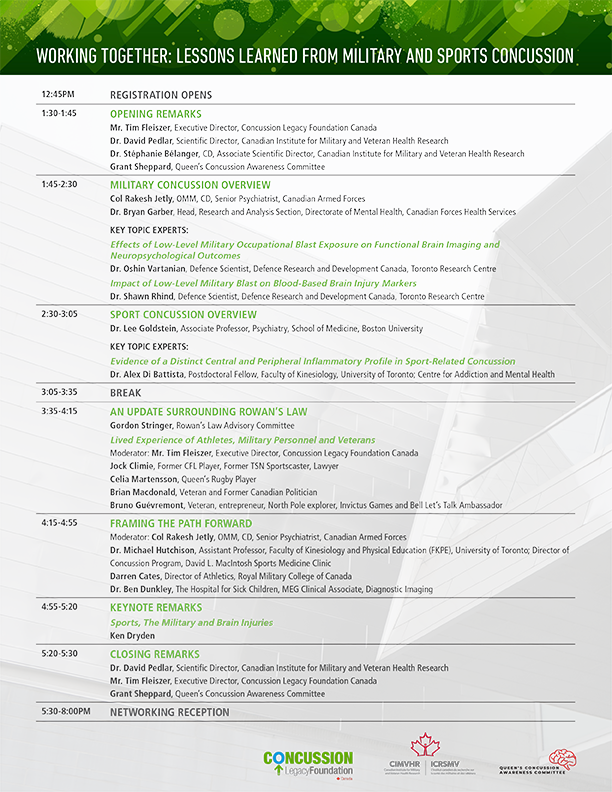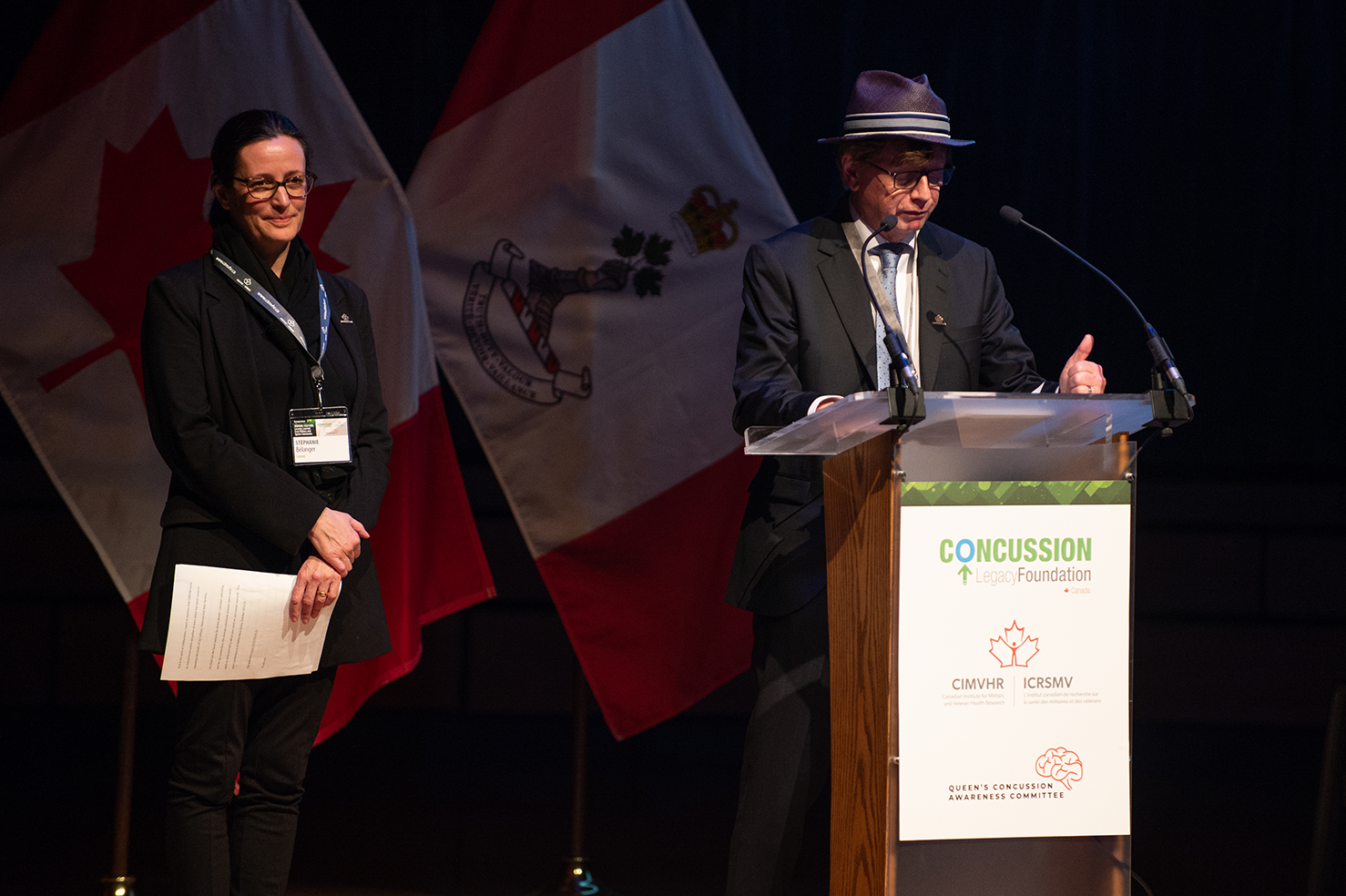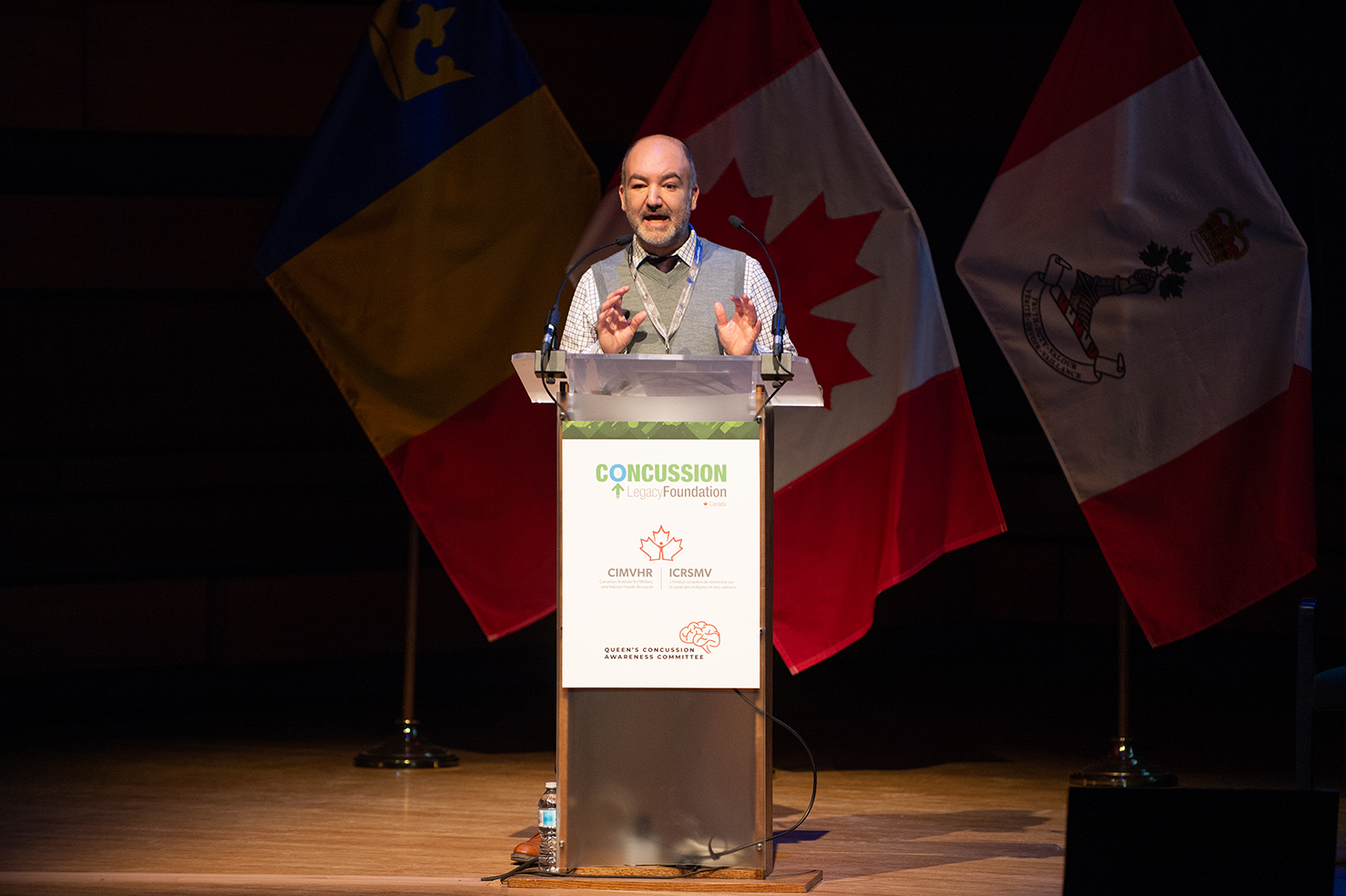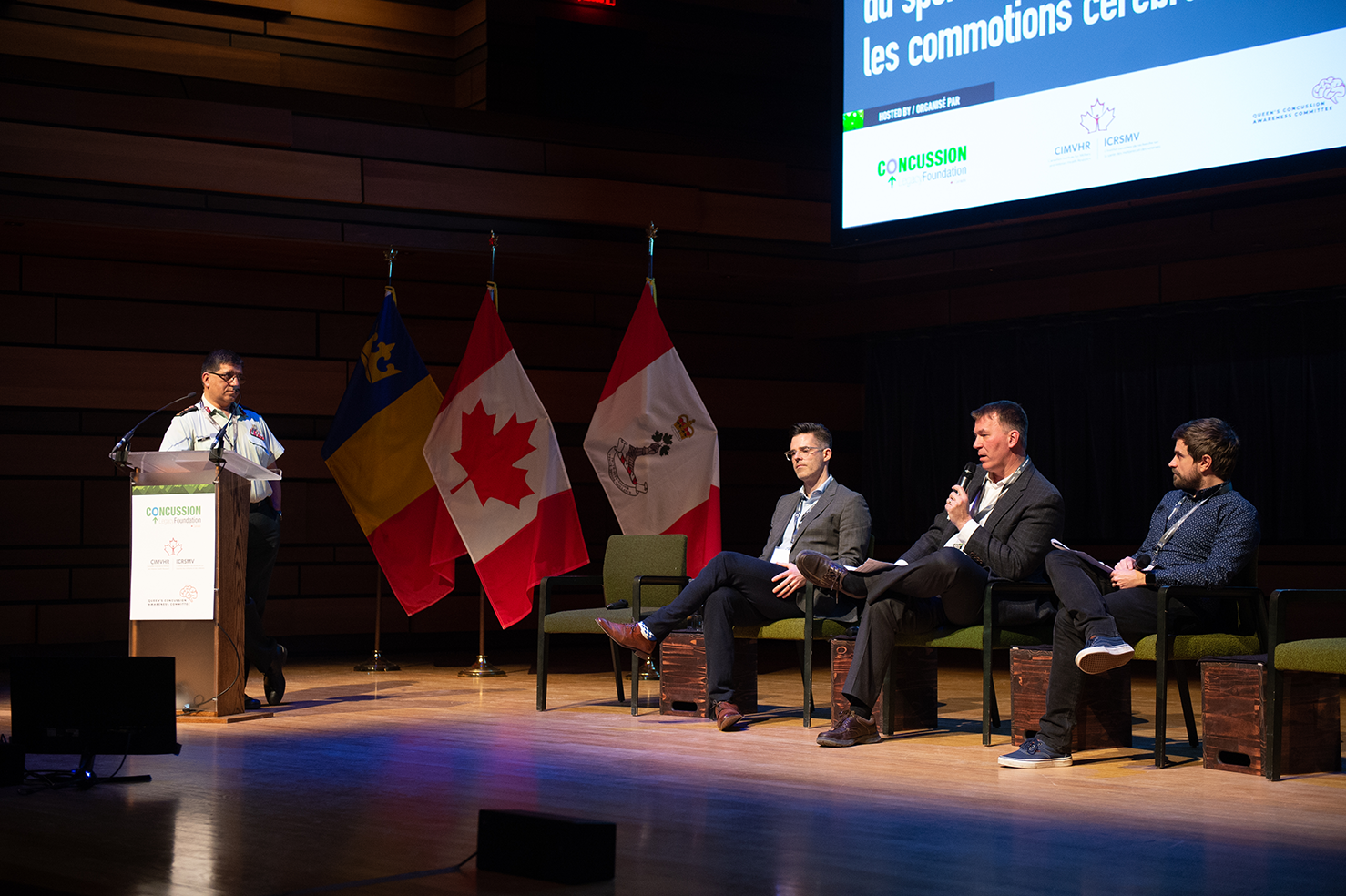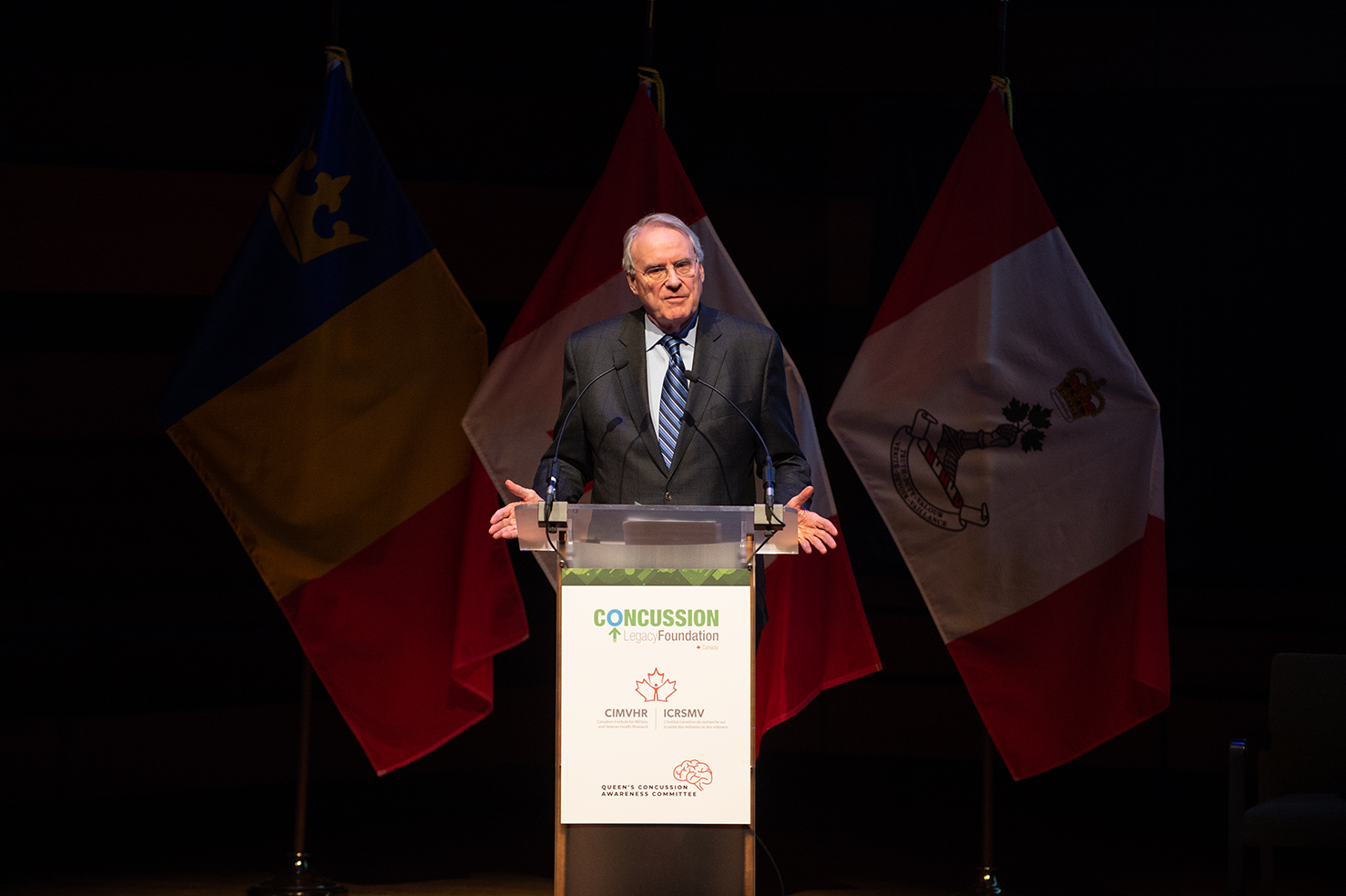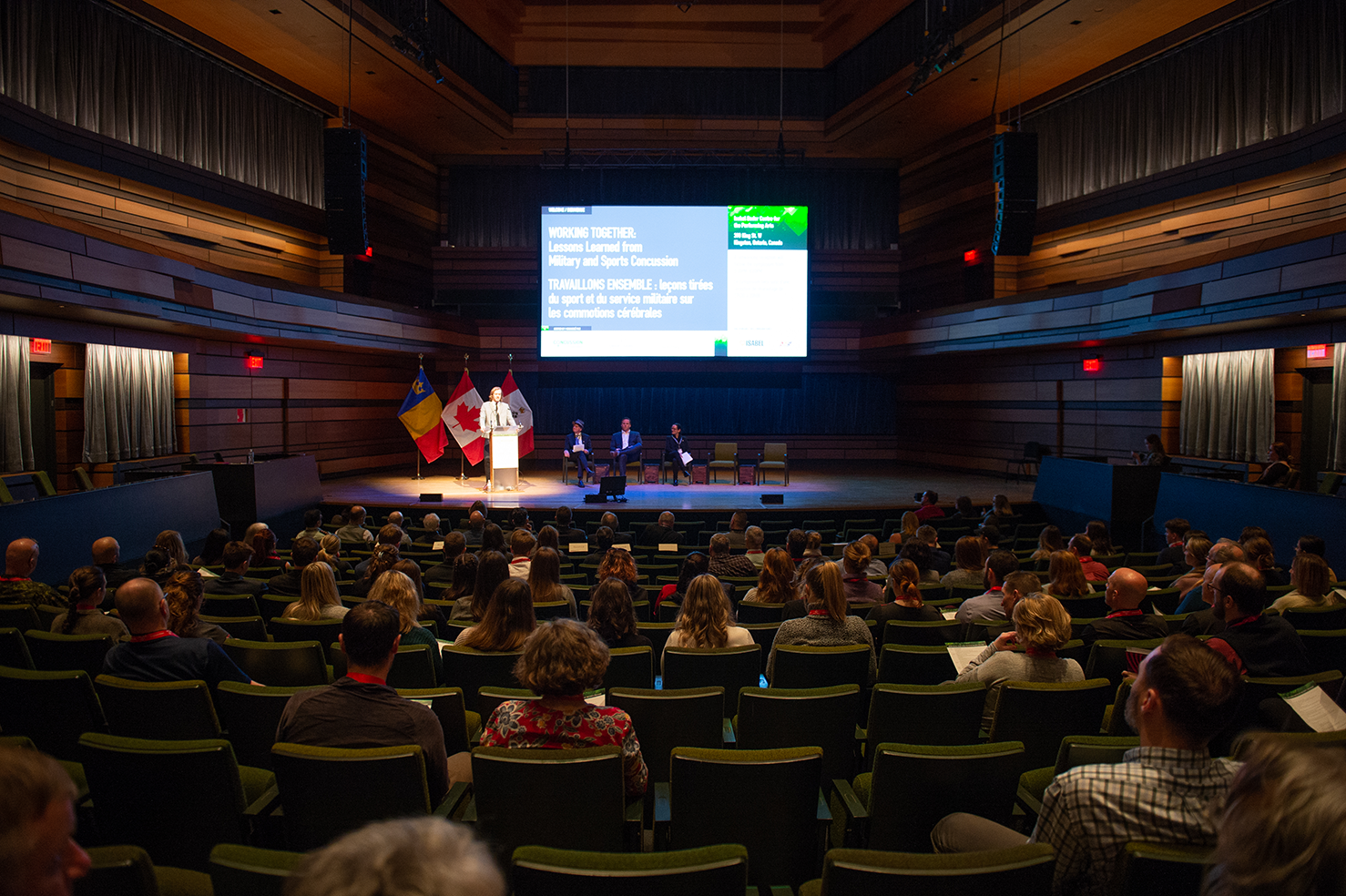Concussion Symposium
Working Together: Lessons learned from military and sports concussion
Together, on February 27th, the Concussion Legacy Foundation Canada, the Queen’s University Concussion Awareness Committee, and CIMVHR hosted the symposium: Working Together: Lessons learned from military and sports concussion.
This afternoon event featuring a keynote presentation by Ken Dryden on Sports, The Military and Brain Injuries, brought together experts from academia, the Canadian Armed Forces and Defence Research and Development Canada in an effort to connect the current research on concussions in sport and explore a link to concussions that occur as a result of military service.
For more details go to concussion-symposium.cimvhr.ca
Dr. Oshin Vartanian
Defence Scientist, Defence Research and Development Canada discusses the effects of low-level military occupational blast exposure on functional brain imagining and neuropsychological outcomes.
FRAMING THE PATH FORWARD
Col Rakesh Jetly, Dr. Michael Hutchinson, Darren Cates, and Dr. Ben Dunkley
Ken Dryden
Canadian politician, businessman, author, and former professional hockey player in the NHL.
photo credit: Cpl Brandon James Liddy
Following an overview of the current state of research on military concussions and concussions in sport, participants heard from athletes and Veterans on their lived experience with concussions. Moderated by Mr. Tim Fleizer from Concussion Legacy Foundation Canada, panelists included Celia Martensson, Queen’s Rugby Player; Brian Macdonald, Veteran and Former Canadian Politician; and Bruno Guévremont, Veteran, entrepreneur, North Pole explorer, Invictus Games and Bell Let’s Talk Ambassador. The panelists shared their feelings of fear of identity loss following their concussions, the importance of peer support programs, and the important role government can play. They concluded with the importance of continuing to listen, learn and share about concussions.
The final panel moderated by Col Rakesh Jetly, brought together experts from The Hospital for Sick Children (Sick Kids), the Royal Military College of Canada (RMC) and the University of Toronto to discuss framing the path forward. The panelists included Dr. Michael Hutchison, Assistant Professor, Faculty of Kinesiology and Physical Education, University of Toronto and Director of Concussion Program, David L. MacIntosh Sports Medicine Clinic; Darren Cates, Director of Athletics, RMC; and Dr. Ben Dunkley, Sick Kids, MEG Clinical Associate, Diagnostic Imaging. Col Jetly stressed the importance of continuing to participate in sport while using current research to improve and follow best practices. For example, the military is looking into different methods of training, including virtual reality. Darren Cates explained the need to make the way sport is played safer. For example, he explained how this year, a small change in volleyball rules has led to fewer impacts to the head. Dr. Hutchison shared that clinicians have begun working with concussion patients on reintegration, getting them active again but in a structured manner. He encouraged those who have suffered head injuries to seek treatment and discussed the importance of clinicians treating the individual as each patient’s symptoms are different. He also commented on knowledge translation, ensuring the research gets to those who can apply it. Finally, Dr. Dunkley took the audience behind the scenes to show how neuroscientists are working to make the invisible injury of concussion visible. Lots of progress has been made in the last 10 years and will continue in the years to come.
Bruno Guévremont, Veteran, entrepreneur, North Pole explorer, Invictus Games and Bell Let’s Talk Ambassador


